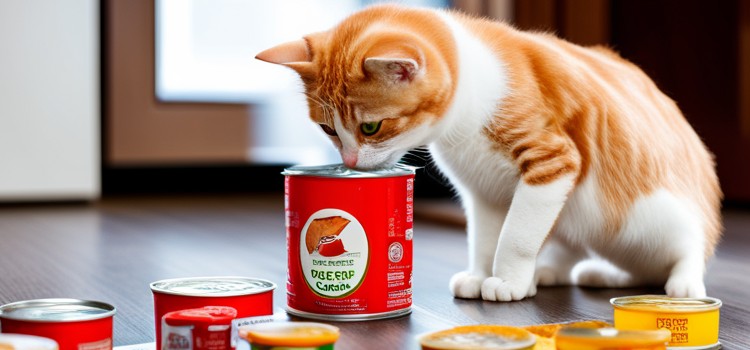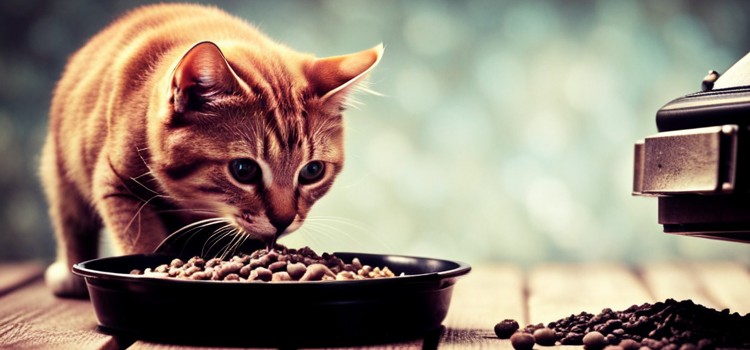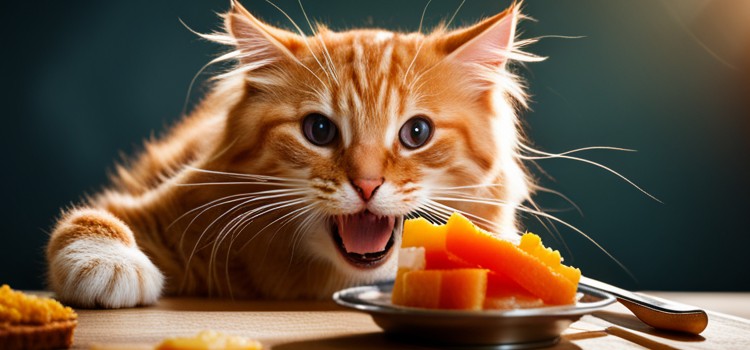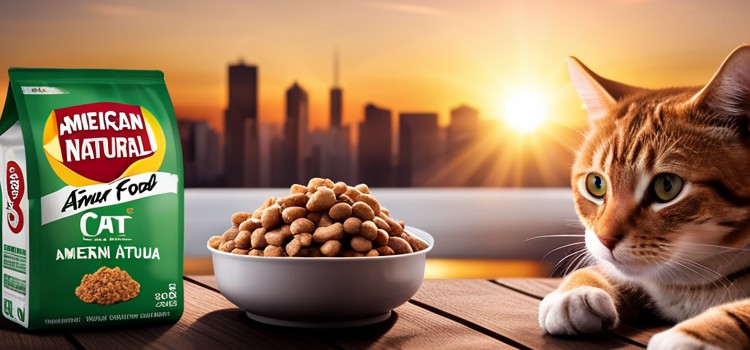As an Amazon Associate committed to the mission of improving the lives of our readers, Live-Clear.com receives a small commission from eligible purchases made through our affiliate links. This revenue enables us to keep producing insightful articles and other material.
Siberian cats eat a combination of commercial cat food and fresh, high-quality meats. Siberian cats have specific dietary requirements that include a combination of commercial cat food and fresh, high-quality meats.
These large, muscular cats need a high-protein diet to support their energy levels and promote optimal health. Their diet should consist of a balanced mix of wet and dry cat food specifically formulated for their nutritional needs, with a focus on lean proteins.

Additionally, Siberian cats can benefit from occasional servings of raw or cooked meats such as chicken, turkey, or fish as a source of natural nutrients. It’s important to consult with a veterinarian to ensure that a Siberian cat’s diet is well-rounded and meets their individual needs. By providing them with appropriate nutrition, Siberian cats can thrive and enjoy a healthy, active life.
Understanding The Natural Diet Of Siberian Cats
When it comes to keeping our beloved feline friends healthy and happy, understanding their natural diet is of utmost importance. Siberian cats, in particular, have a long history as natural hunters and carnivores. Their diet in the wild consists primarily of meat, which provides them with the essential nutrients they need to thrive. In this article, we will explore the natural diet of Siberian cats, their nutritional requirements, and how we can ensure they receive the optimal nutrition they need for optimal health.
Siberian Cats: Natural Hunters And Carnivores
Siberian cats, originating from the cold and harsh environment of Siberia, have adapted to be exceptional hunters. Their strong and muscular bodies, along with their thick fur coats, enable them to survive in extreme conditions.
Being natural carnivores, Siberian cats have evolved to consume a diet primarily consisting of meat. This means that their bodies are designed to derive essential nutrients, such as proteins and fats, from animal sources. While they may enjoy the occasional nibble on plants or grass, their digestive systems are not as equipped to handle a vegetarian diet like some other pets.
Their Diet In The Wild
In their natural habitat, Siberian cats are skilled hunters, preying upon small mammals, birds, fish, and even insects. These prey animals provide a valuable source of protein, vitamins, minerals, and essential fatty acids that contribute to their overall health and well-being.
To mimic their natural diet in a domestic setting, it is essential to provide Siberian cats with a high-quality diet that closely resembles what they would consume in the wild. This means feeding them a balanced mix of protein-rich animal meats, such as chicken, turkey, or fish.
Nutritional Requirements For Optimal Health
In addition to their need for high-quality protein, Siberian cats also require other vital nutrients for optimal health. These include essential fatty acids, vitamins, and minerals.
Essential fatty acids, such as Omega-3 and Omega-6, play a crucial role in maintaining healthy skin and coat, as well as supporting the immune system and promoting proper brain function. These fatty acids can be found in fish, such as salmon and sardines.
Siberian cats also need a variety of vitamins and minerals, including vitamin A, vitamin E, calcium, and taurine. It is important to provide them with a well-balanced diet that includes animal organs, such as liver, as they are rich sources of these essential nutrients.
To ensure that our Siberian cats thrive and enjoy optimal health, it is essential to feed them a diet that closely resembles their natural diet in the wild. This means providing them with high-quality protein sources, essential fatty acids, and a variety of vitamins and minerals. By doing so, we can help our feline friends live long, happy, and healthy lives.
Meat-based Diet For Siberian Cats
Siberian cats thrive on a meat-based diet, which includes high-quality sources of protein like poultry, fish, and lean meats. This nutrient-rich diet helps to support their active lifestyle and maintain their overall health and well-being.
The Importance Of A Meat-based Diet
A meat-based diet is essential for the overall health and well-being of Siberian cats. As obligate carnivores, these feline companions require a high amount of animal protein in their daily meals. A diet rich in meat not only satisfies their natural instinct to hunt and consume prey but also provides the necessary nutrients for optimal growth, digestion, and muscle development.
Feeding your Siberian cat a meat-based diet promotes strong bones, healthy skin and coat, and supports a robust immune system. Additionally, it helps maintain their ideal body weight and prevents common feline health issues such as obesity and diabetes.
Best Sources Of Protein For Siberian Cats
When it comes to choosing the best sources of protein for your Siberian cat, it’s vital to prioritize high-quality, animal-based ingredients. The following protein sources are ideal for these magnificent felines:
- Poultry: Chicken and turkey are excellent protein sources for Siberian cats. These lean meats offer essential amino acids and are generally well-tolerated by feline digestive systems.
- Beef: Lean cuts of beef provide a rich source of protein for Siberian cats. Look for options such as ground beef or beef chunks without excessive fat content.
- Fish: Fish, especially those rich in omega-3 fatty acids like salmon and mackerel, can be a valuable addition to a Siberian cat’s diet. These fish varieties contribute to maintaining a healthy skin and coat.
- Lamb: Lamb is another quality source of protein for your Siberian cat. Ensure it is lean and properly cooked or prepared to avoid any potential health risks.
- Rabbit: Rabbit meat is highly digestible for cats and provides an excellent source of lean protein. It is a great alternative for cats with known allergies or sensitivities to other meats.
Remember, always choose high-quality, human-grade meats, and avoid fillers or by-products that offer little to no nutritional value for your Siberian cat.
Incorporating Different Types Of Meat Into Their Diet
To ensure your Siberian cat receives a well-rounded diet, it’s important to incorporate various types of meat into their meals. This helps provide a range of essential nutrients and prevents boredom with their food. Consider rotating between different protein sources, such as chicken, beef, fish, lamb, and rabbit, to keep their taste buds and nutritional needs satisfied.
Aim for a balance between muscle meats and organ meats, as organ meats offer additional nutrients like vitamin A, iron, and B vitamins. It’s also important to include a small amount of bone in their diet to promote dental health and provide calcium.
When introducing new meats, do so gradually to allow your Siberian cat’s digestive system time to adjust. Observe their response to different protein sources and consult with your veterinarian if you notice any adverse reactions.

Providing A Balanced Diet For Siberian Cats
When it comes to keeping your Siberian cat healthy and vibrant, providing a balanced diet is of utmost importance. These majestic felines require a well-rounded nutritional plan, ensuring they receive all the essential nutrients their bodies need to thrive. In this article, we will explore the various components of a balanced diet for Siberian cats, including the essential nutrients they require, supplementing their diet with vitamins and minerals, and how to avoid common food allergies in these beautiful creatures.
Essential Nutrients For Siberian Cats
Just like humans, Siberian cats need a variety of essential nutrients to support their overall health. These nutrients include:
- Protein: High-quality animal protein should make up a significant portion of a Siberian cat’s diet. It aids in muscle building and maintenance.
- Fat: Healthy fats such as omega-3 fatty acids are essential for a Siberian cat’s skin, coat, and overall well-being.
- Carbohydrates: While cats are obligate carnivores and do not require a large amount of carbohydrates, a moderate amount can provide energy.
- Vitamins: Vitamins like A, D, E, and B-complex are crucial for supporting various bodily functions.
- Minerals: Minerals such as calcium, phosphorus, and magnesium are essential for strong bones, teeth, and proper muscle function.
- Water: Adequate hydration is fundamental for a Siberian cat’s overall health, promoting organ function and healthy digestion.
Supplementing Their Diet With Vitamins And Minerals
While a balanced diet should ideally provide all the necessary vitamins and minerals, sometimes additional supplementation may be required. Before introducing any supplements, it is important to consult with a veterinarian to ensure the optimal dosage for your Siberian cat. Some commonly used supplements for Siberian cats include:
- Omega-3 fatty acids: These supplements can promote a healthy coat, reduce inflammation, and support joint health.
- Probiotics: Probiotics can aid in maintaining a healthy gut flora, improving digestion and overall immune function.
- Joint supplements: Glucosamine and chondroitin are often used to support joint health, especially in older Siberian cats prone to arthritis.
Avoiding Common Food Allergies In Siberian Cats
Siberian cats, like any other breed, can be susceptible to food allergies or sensitivities. Common food allergens in cats include:
| Allergen | Symptoms |
|---|---|
| Grains (wheat, corn, soy) | Digestive issues, skin irritations, ear infections |
| Fish | Itchy skin, vomiting, diarrhea |
| Dairy products | Diarrhea, digestive upset |
| Chicken or beef | Digestive issues, skin irritations, ear infections |
If you suspect your Siberian cat has a food allergy or sensitivity, it is crucial to consult with a veterinarian for a proper diagnosis. They may recommend an elimination diet or a hypoallergenic diet to pinpoint the specific allergen and help your feline friend lead a comfortable, allergy-free life.
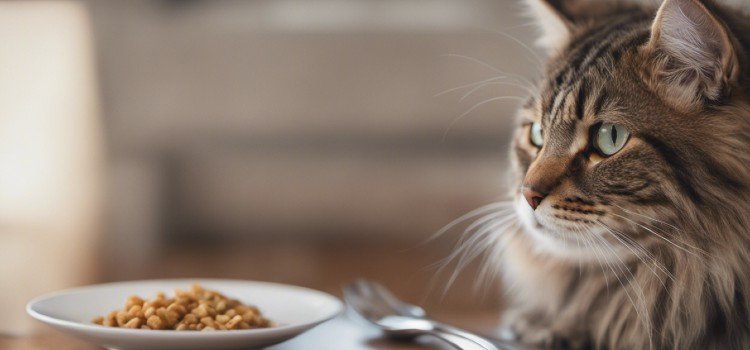
Homemade Vs. Commercial Cat Food For Siberian Cats
When it comes to ensuring the health and well-being of our beloved Siberian cats, their diet plays a crucial role. As responsible cat owners, we often find ourselves faced with the decision of whether to feed our furry friends homemade food or to opt for commercial cat food. Both options have their pros and cons, and it’s important to make an informed decision that best suits the unique needs of your Siberian cat.
Pros And Cons Of Homemade Cat Food
Homemade cat food offers a number of advantages for Siberian cats. Firstly, it allows you to have full control over the ingredients, ensuring that your cat receives a balanced and nutritious meal. You can choose high-quality proteins, such as chicken or fish, and incorporate fresh fruits and vegetables. Homemade cat food also eliminates the need for preservatives or fillers that are often found in commercial cat food.
However, there are also some potential drawbacks to consider when it comes to homemade cat food. Firstly, it requires time and effort to prepare meals for your cat on a daily basis. This may not be feasible for some busy cat owners. Additionally, it requires knowledge and expertise to create a well-rounded and nutritionally balanced diet. Without proper research and understanding of feline nutritional requirements, homemade cat food may lack essential nutrients, leading to possible deficiencies or imbalances.
Choosing The Right Commercial Cat Food Brand
If you decide to go with commercial cat food for your Siberian cat, choosing the right brand is crucial. It’s important to look for a brand that prioritizes the health and well-being of cats, using high-quality ingredients. Avoid brands that use artificial additives, fillers, and by-products.
When selecting a commercial cat food brand, consider the following factors:
- The first ingredient listed should be a high-quality animal protein source, such as chicken, turkey, or fish.
- Avoid cat foods that contain excessive amounts of carbohydrates, as Siberian cats have a low carbohydrate tolerance.
- Check for the Association of American Feed Control Officials (AAFCO) statement on the label, indicating that the food meets minimum nutritional standards.
- Look for brands that conduct regular testing and quality control to ensure the safety and nutritional integrity of their products.
Reading And Understanding Cat Food Labels
Understanding the information on cat food labels is vital to ensure you are making the best choice for your Siberian cat. Here are key points to consider:
- Look for the guaranteed analysis, which provides information on the minimum percentages of crude protein and fat, and maximum percentages of crude fiber and moisture content.
- Check the ingredient list and prioritize products that list high-quality proteins and avoid those that contain artificial preservatives, flavors, or colors.
- Ensure that essential nutrients, such as taurine, are included in adequate amounts. Taurine is vital for a cat’s overall health and plays a crucial role in maintaining good heart and eye health.
| Pros of Homemade Cat Food | Cons of Homemade Cat Food |
|---|---|
| Full control over ingredients | Requires time and effort to prepare |
| Can use high-quality proteins and fresh ingredients | Requires knowledge to create a balanced diet |
| Avoidance of preservatives and fillers | Possible deficiencies or imbalances |
Treats And Supplements For Siberian Cats
Siberian cats, known for their luxurious coats and friendly personalities, require a balanced diet to maintain optimal health. While their main meals should consist of high-quality cat food, incorporating treats and supplements into their diet can provide additional nutrition and support their overall well-being. This article will explore healthy treat options for Siberian cats, the role of supplements in their diet, and safe and beneficial supplements specifically designed for Siberian cats.
Healthy Treat Options For Siberian Cats
When it comes to choosing treats for your Siberian cat, it’s important to opt for healthy options that contribute to their overall nutrition. Here are some healthy treat choices your furry friend will love:
- Freeze-dried meats: These treats provide a great source of protein and are packed with essential nutrients. Look for options such as freeze-dried chicken or salmon, which are not only delicious but also satisfy your cat’s natural carnivorous instincts.
- Homemade treats: If you’re feeling creative, consider making your own treats for your Siberian cat. Ingredients like tuna, chicken, and pumpkin puree can be mixed together and baked into bite-sized treats that are both tasty and wholesome.
- Dental treats: Keep your Siberian cat’s teeth clean and healthy with dental treats specially designed to promote oral hygiene. These treats often have a chewy texture that helps reduce plaque buildup and freshen their breath.
The Role Of Supplements In Their Diet
In addition to a well-balanced diet, supplements can play a vital role in ensuring your Siberian cat receives all the necessary nutrients. Supplements can provide additional support in areas such as joint health, digestion, and skin and coat condition. It’s important to note that supplements should not replace a proper diet but rather complement it.
Safe And Beneficial Supplements For Siberian Cats
Several supplements are specifically formulated to cater to the unique needs of Siberian cats. These supplements can provide targeted benefits and support their overall well-being. Here are some safe and beneficial supplements to consider:
| Supplement | Benefits |
|---|---|
| Omega-3 fatty acids | Supports a healthy coat and skin, reduces inflammation, and promotes joint health. |
| Probiotics | Improves digestive health, aids in nutrient absorption, and strengthens the immune system. |
| Glycosaminoglycans (GAGs) | Supports joint health, reduces inflammation, and helps alleviate symptoms of arthritis. |
Remember to consult with your veterinarian before introducing any supplements into your Siberian cat’s diet. They can provide guidance on the appropriate dosage and help you choose the most suitable options based on your cat’s specific needs.

Conclusion
Siberian cats have specific dietary needs that should be met to ensure their overall health and well-being. Providing a balanced diet that includes high-quality proteins, essential nutrients, and plenty of water is crucial for these majestic felines. It’s important to consult with a veterinarian to determine the best feeding plan for your Siberian cat, considering their age, weight, and any specific dietary restrictions.
Frequently Asked Questions On What Do Siberian Cats Eat
Siberian cats can eat certain human foods, such as cooked turkey, chicken, and fish. Avoid foods like chocolate, onions, and grapes that are toxic to cats. Remember to consult your vet before introducing new foods into your cat’s diet.
Yes, Siberian cats do enjoy being held. They are affectionate and often seek out cuddles from their owners.
Yes, Siberian cats can eat eggs. Eggs are a good source of protein and can be a part of a balanced diet for them. However, they should be cooked thoroughly and given in moderation to avoid any health issues.
Siberian cats drink water, just like any other cat. They need clean and fresh water daily to stay hydrated and healthy.
Siberian cats require a balanced diet consisting of high-quality cat food that includes meat, fish, and essential nutrients.
By giving them the right food, you can help them thrive and enjoy a long and happy life.
Amazon and the Amazon logo are trademarks of Amazon.com, Inc, or its affiliates.
